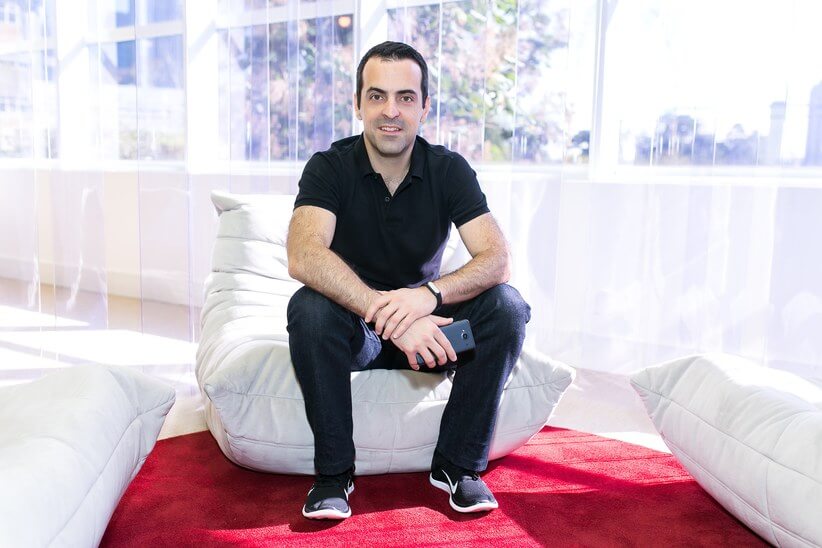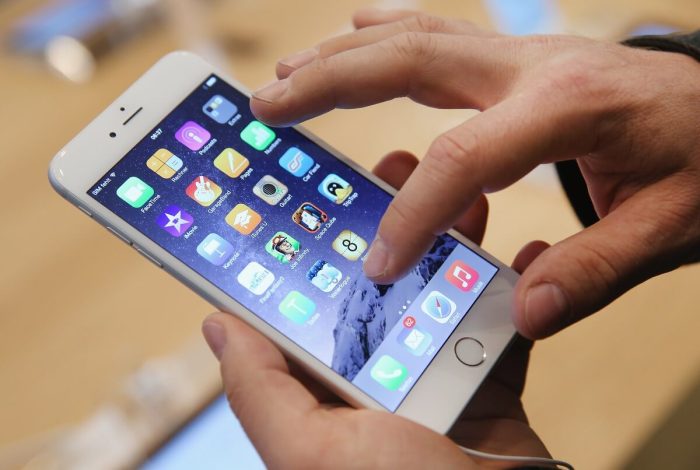It’s the world’s biggest tech company you’ve never heard of: Xiaomi is fast becoming a leading smartphone juggernaut, selling affordable yet snazzy units like hot cakes in markets as diverse as India, Indonesia and Brazil. Last year the Chinese brand sold over 60m handsets across the globe, behind only Samsung and Apple, and amassed revenues of $12 billion. At $46 billion, Xiaomi is valued more than Airbnb or Snapchat, earning by some the title of “the world’s most valuable technology startup”. The man tasked with their international operations is Hugo Barra, a top Google executive who left the search giant for Xiaomi two years ago. Barra talks to Metro on the global appeal of the Chinese brand. Xiaomi has broken into the top 4 smartphone makers in the world, yet the firm has only been around for five years. How do you see it?
We are still a small and new startup, if compared with other major ones. It seems that we focus only on smartphones, but not really, although we are already in this ranking. We are an internet company. Of course, cellphones are our main product, but we don’t want to be known only because of them. We are more – we are an internet service platform. You are tasked with expanding the brand in the global market. How’s that?
I command the entire team operations outside China and that’s not easy, but since I got here we have already expanded our portfolio of products, ranging from items for mobiles to a smart TV and even a wearable. Today we already got six smartphone models and the idea is to continue bringing innovations. Brazil was the first country to manufacture Xiaomi phones outside China. Why Brazil in particular?
Brazil will become the fourth largest smartphone market in the coming year; the sales of such equipment there is very large. It seemed the ideal place to expand, as well as India, which is also one of our focuses. So you intend to target emerging markets only or you’re thinking about exploring large one in the U.S. and Europe?
We are aiming rather well on these emerging markets, particularly Brazil, India and Indonesia, as well as Malaysia, Singapore and others in the region. Of course, we intend to gain space in those major markets, U.S. and Europe, but we’ll only try it when we feel stronger and more mature. Xiaomi’s motto is: high quality products with affordable prices. Does that about sum up your firm?
Yes, this is our philosophy, that’s why we sell the final product direct to the consumer. We have well-priced products in our portfolio, for other pockets and purposes, but our main goal is to make accessible and rather technological devices. You put a lot of value in reaching out to young users, with your marketing done almost exclusively via social media. Is this your path to growth?
We are a young company, so we like to speak directly to our audience, which is full of new and connected individuals. We have created a very personal relationship with them; we hear their criticism and try to improve and this has helped us a lot because it generates the so-called “word of mouth marketing“ – one person telling to other that they liked our device and found it nice and different, then all this becomes viral and so we grow. So, most of your publicity and advertising hinges on the users?
We use few resources for advertising compared with other companies. Most really comes from this contact amongst the fans who enjoy and talk about the brand.
The number of fans and followers, by the way, which has grown considerably in recent times, giving the company the nickname of ‘the Apple of China’. What do you think of that?
Look, we enjoy this comparison, but I think we are totally different from Apple. We aremore casual, young and cool. It’s another style.
Indeed, the mobile phone industry is a very competitive market place, with similar features shared by units across companies. How are your products different to others, making them attractive to users? I think the main difference is our operating system, MIUI, which is based on Android and allows greater customization [with MIUI, registered users submit ideas for improvement and Xiaomi updates the operating system weekly – Ed.]. For those who like to discover more, it is ideal. Thus, the phone becomes highly customized, each owner has a different one. You left Google to take on a more strategic position in Xiaomi. How has your past experience helped you?
If there’s one thing I have learned at Google, it’s that small businesses often have greater impact because they move with more speed. I think I also brought from Google the idea of giving a high degree of autonomy for developers. Another contribution is to realize that the smartphone industry is highly global and we need to think in large markets. So, our focus is to have people all over the world to help us to expand our devices. Can you reveal anything special up and coming for Xiaomi?
Ahhh, I cannot speak yet. But you can know that we will soon have new stuff, very innovative.
Speaking of Google, you upped sticks and left the U.S. to go and live in China. How was this change? Are you already able to speak Mandarin?
I speak Mandarin just a bit, more for day-to-day things because at work I speak English all the time. But I can say that I really like living in China. I enjoy a lot around here.
What do you do in your spare time there?
I travel a lot. I’m here half the time and the other half around the world, following everything related to the company, but I get some free time to enjoy. I read a lot and I love swimming. And I really like walking around Asia. It is a really amazing place to savor.
Hugo Barra: The global face of Xiaomi, a.k.a. the ‘Apple of China’

Hugo Barra/Xiaomi/Publicity


















